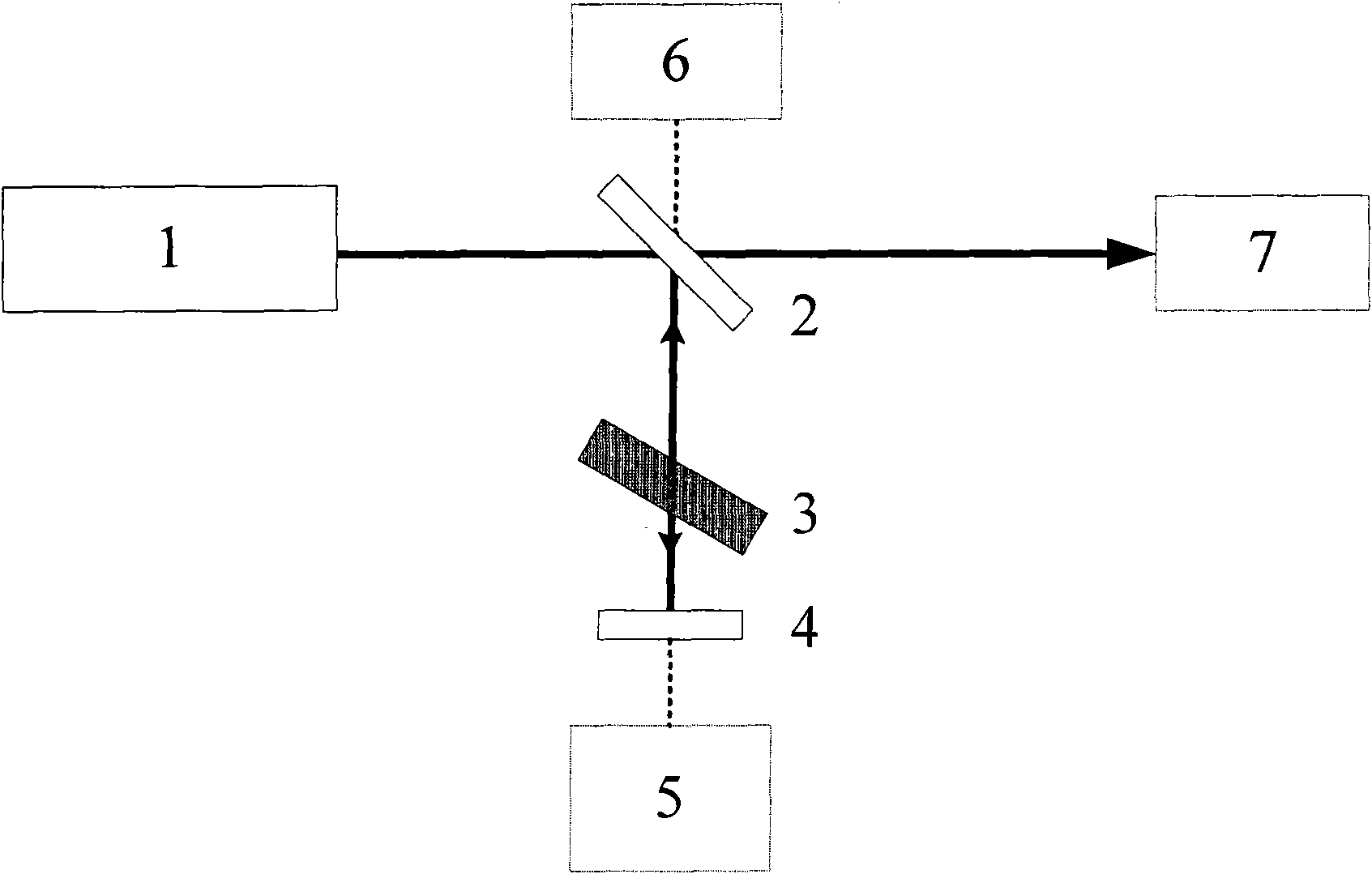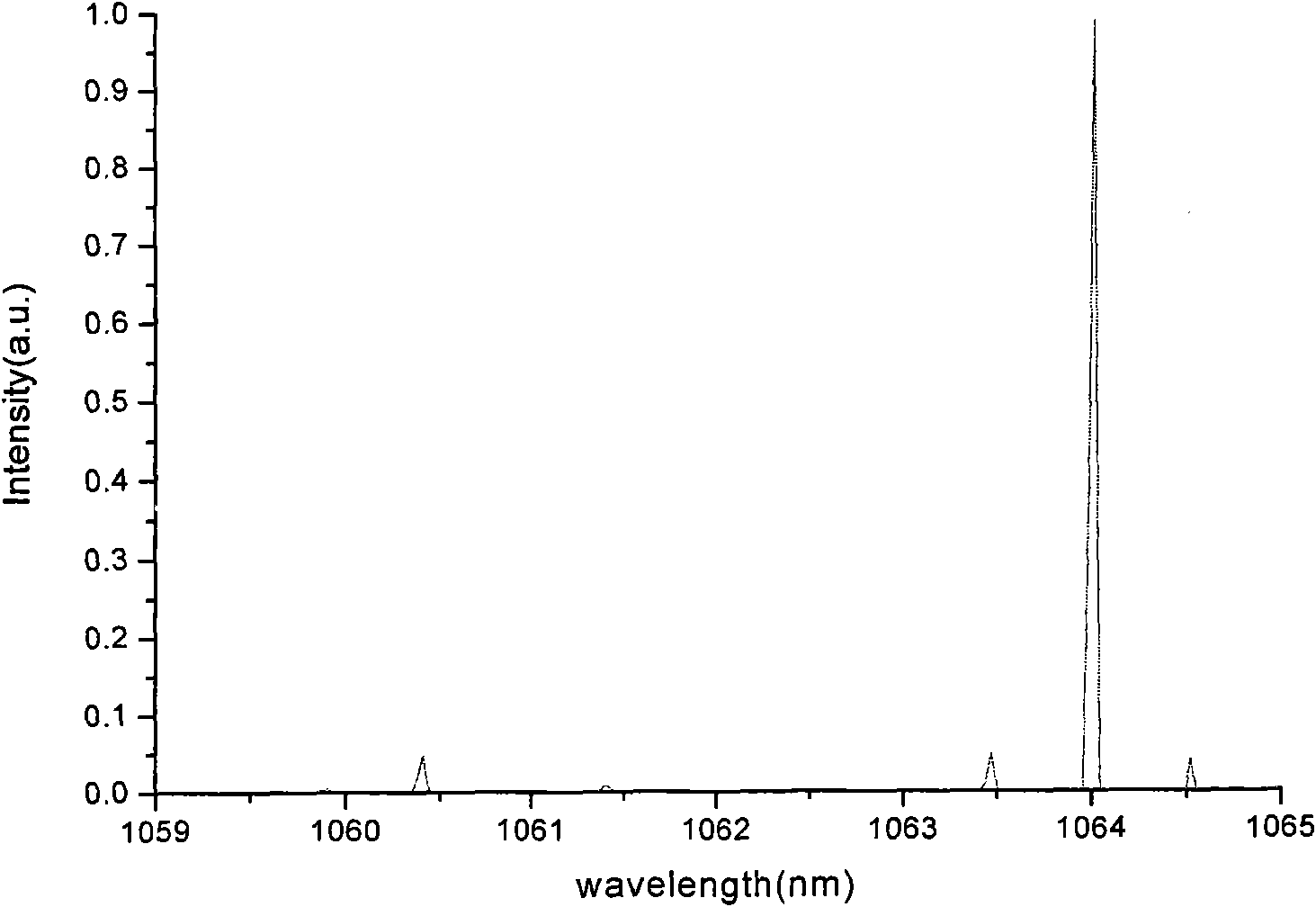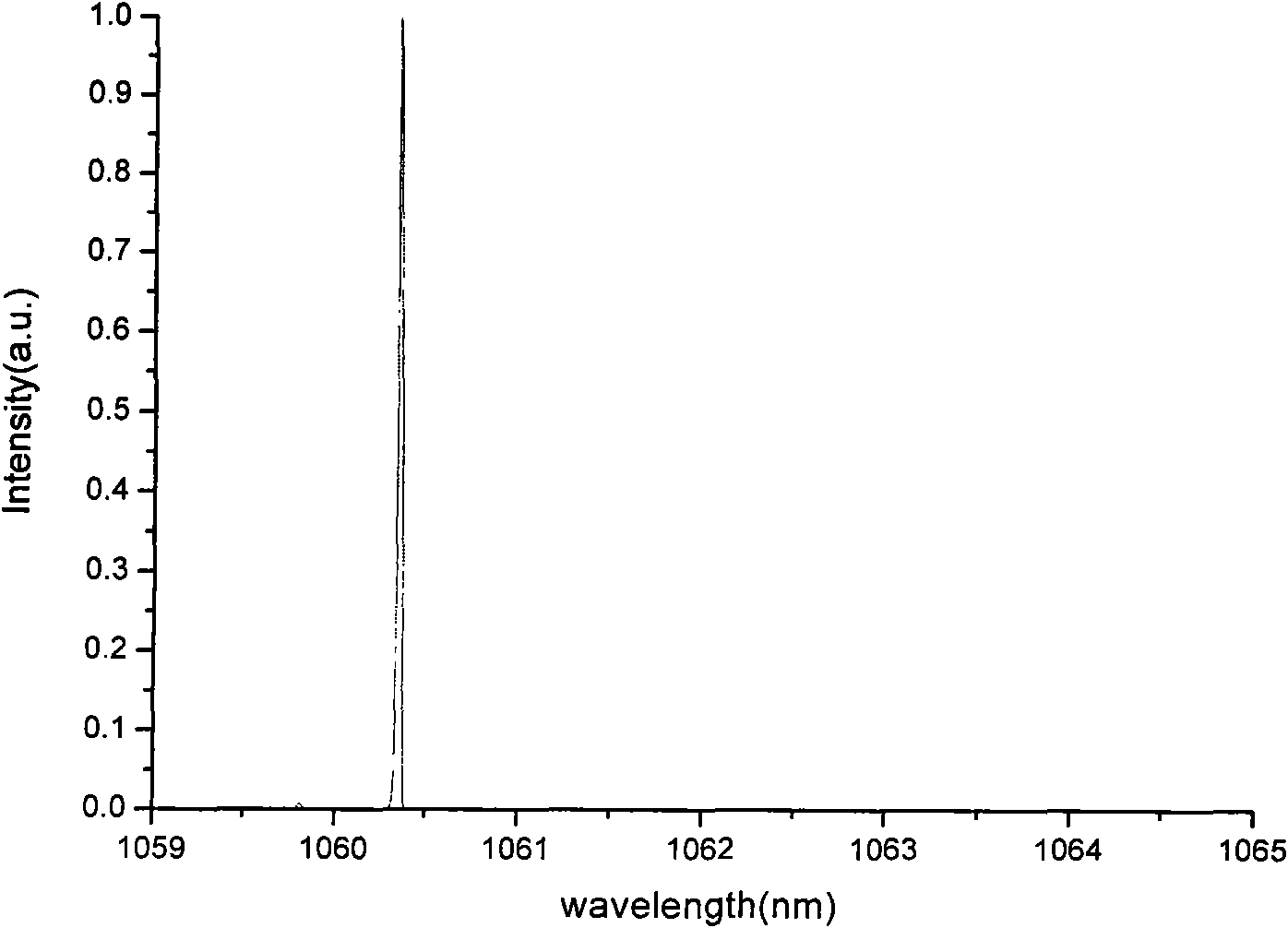Method for tuning laser output wavelength based on self-mixing effect
A technology of tuning lasers and self-mixing, which is applied to devices, optics, and instruments that control the output parameters of lasers to achieve the effects of high repeatability, stable output optical power, and simple external modification.
- Summary
- Abstract
- Description
- Claims
- Application Information
AI Technical Summary
Problems solved by technology
Method used
Image
Examples
Embodiment Construction
[0033] Such as figure 1 As shown, the device of the present invention is composed of a laser 1 , a beam splitter 2 , a variable attenuation plate 3 , a mirror 4 , a spectrometer 5 , a detector 6 , and an optical power meter 7 . The detector 6 generally adopts a photodiode or a photomultiplier tube detector.
[0034] The concrete implementation of the inventive method is as follows: as figure 1 As shown, laser 1 adopts a continuous semiconductor laser with an output wavelength of 1060nm. Because it is in the invisible band, a visible light can be introduced during the experiment as an auxiliary optical path, which is convenient for subsequent optical path adjustment; beam splitter 2 is a 45° beam splitter. When the feedback light intensity can meet the needs of the experiment, increase the transmission ratio of the beam splitter as much as possible to make the output light power as large as possible. Through the analysis of experimental data, the transmission ratio of the beam...
PUM
| Property | Measurement | Unit |
|---|---|---|
| reflectance | aaaaa | aaaaa |
Abstract
Description
Claims
Application Information
 Login to View More
Login to View More - R&D
- Intellectual Property
- Life Sciences
- Materials
- Tech Scout
- Unparalleled Data Quality
- Higher Quality Content
- 60% Fewer Hallucinations
Browse by: Latest US Patents, China's latest patents, Technical Efficacy Thesaurus, Application Domain, Technology Topic, Popular Technical Reports.
© 2025 PatSnap. All rights reserved.Legal|Privacy policy|Modern Slavery Act Transparency Statement|Sitemap|About US| Contact US: help@patsnap.com



